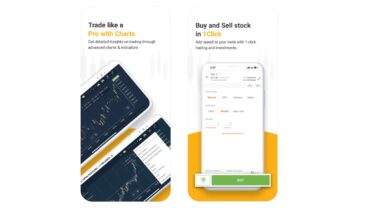Top Tips on How to Become a Smart Borrower

Many people understand how consumer debts work. If you accumulate all the expenses on credit card and fail to pay them back, then trouble looms. However, that is not the case for startup business loans. Many people seem not to understand how they work.
Sometimes, you need financing for your business, but you have no idea which loan is best for the business. The worst problem exists in making smart borrowing decisions and laying out a solid plan to help repay the loan.
To help you make smart borrowing and repayment strategies, go through this guide that seeks to answer the most pertinent issues you’ll encounter.
Do You Have to Borrow?
The first step to making a smart borrowing decision, especially in a new business, starts with analyzing whether you need to take out a loan or not. Do you have other means to finance business to avoid a loan? One of the ways to avoid borrowing is by creating a trustworthy working relationship between you and other businesses and your clients.
For example, if you own a company that deals with corporate clients, it is possible these clients will not pay before a certain period, most of the time, it’s 30 days. This can put you in a sticky situation financially because your staff needs their pay. If you have suppliers, it gets even more difficult because some of them demand payment on delivery.
To work around this, you can ask your suppliers to enter into a contract that will have them receive payment through an invoice sent after 30 days. This will give you time to receive your funds and pay what you need to pay without stalling.
Is the Loan Affordable?
If you can’t find ways to avoid borrowing, you can go ahead and borrow. Before doing so, analyze your financial status to find out whether the loan is affordable.
Just like how you run your household, do the same with your business. Running a household requires you to know what you need in order to avoid exceeding your budget. Take the same mindset into your business. If you decide to take a loan, determine your “debt coverage ratio.”
To calculate this, take the amount you get from the business Before repaying any loans. Then divide it by the amount you expect to pay in debt every month. If you don’t arrive at 1.25 to 1.50 or higher, then, borrowing will be a tall order.
To put this into perspective, let’s use real figures. For example, if you take out a $60,000 loan to be repaid in 5 years, your monthly payment will revolve around $1,000 per month that DOESN’T COVER INTEREST AT ALL? After deducting operating expenses, the cash flow from your business should be about $1,500. Which is 1.5 times the monthly payment. Can you afford this? Also, how tight will it get?
Answering these two questions is vital for both you and the business.
Timing your Needs
One of the crucial decisions that come with borrowing and repaying is how much you need and at what time. Experts advise you to have a business plan that covers at least 2 years.
Next, you need to understand what the purpose of the loan is and how much it will cost. Get the estimates from concerned parties. For startups, calculate the foreseeable expenses before opening. Such expenses include hiring, franchise fees, and more.
In the business plan you create, you should be able to identify lags between when you deliver the goods and when you receive payment. The plan will help you make a rough forecast of the next two years and how your cash flow will look like so as to guide you into responsible borrowing.
The business plan will also help you identify future shortfalls in cash. In addition, you need to apply for the loan about six months in advance from when you need the money
Which Lender is the Best?
After making decisions on the amount needed and when you need it, you can begin searching for the best lender via Nation21Loans other than banks. The reason for seeking other lenders is that banks have many restrictions on certain types of businesses, including startups.
Some of the restrictions and long processes include:
- Reviewing financial statements
- Analyzing your tax history
- Checking for a good credit score
- What collateral your business offers
Even after the long process (about a few weeks), the bank can still turn down your application. On the other hand, non-bank lenders tend to be quite tolerant when it comes to lending terms. They also use creative methods to calculate your creditworthiness like:
- Checking your social media engagements
- Going through customer reviews using third-parties like Yelp
- Looking at any accounting software you have
By using the above means, these lenders can offer you a loan in less than a week, thus making them an excellent substitute for banks.
Which Type of Loans Are the Best?
Before going for any loan, keep the following in mind:
- The amount you intend on borrowing
- The loan terms and interest rates
- The borrowing period
Anything that affects these three factors will affect your payments.
Smart borrowing requires that you to outline short and long-term expenditures. After that, match the assets you intend to buy to the borrowed amount. Under assets, you have long-term and short-term assets. The former includes equipment that you’ll use for a long time, more than one year. The latter includes items that will need financing for not more than a year.
Try to Minimize Debt
Taking debt is not always a good idea especially when you do not need it. Try to borrow only if you need the money real urgent and can’t avoid taking a third-party money help. Not taking debts unnecessary is certainly a smart decision.
Make Larger Payments on High Interest
Paying early for the loans those have a higher rate of interest, in case these don’t have any prepayment penalty is a great choice to save some extra money. Paying early to get rid of these monster debts certainly helpful to focus on other much affordable debts.
Is There a Backup Plan?
As a responsible borrower, you need a contingency plan for when times get hard, times when you’ll be unable to make a payment. Is there such a plan to cover for these situations? If you don’t have one, you need one. Don’t get so involved with the money that you forget to create such a vital provision.
In Conclusion
Becoming a responsible borrower isn’t as tough as it sounds. Now that you know the most important questions to ask before borrowing, you have the ability to become a smart borrower.
Taking simple steps like those outlined here can mean the difference between financial stability and an ocean of debt.
Recommended For You
Choosing the Right Investment App: What to Look For
Most Inside
Most Inside offers high-quality recommendations and valuable updates to enhance all aspects of your life, providing premium guidance and enriching experiences.




